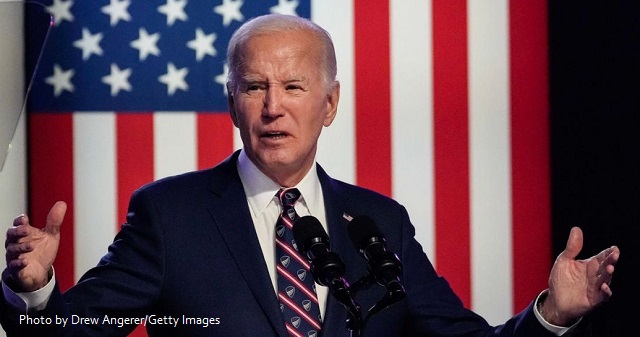The Congressional Uni-Party Continues to Bury America, like Venezuela, Deeper and Deeper into Debt
By Geoff Ross

The Constitutional Republic of the United States is currently being run like a Communist Venezuelan “Democracy.”
The interest alone on the out of control U.S. national debt is approaching the annual appropriations price tag for our military and national security defense expenditures.
Megan Henney from FOX Business reported,
The U.S. national debt is climbing at an astronomical pace and has shown no signs of slowing down despite the heightened scrutiny on government spending.
The national debt — which measures what the U.S. owes its creditors — fell to $34,088,375,076,993.31 trillion as of Wednesday afternoon, according to the latest numbers published by the Treasury Department. That is down about $21 billion from the $34,109,378,375,744.03 figure reported the previous day.
By comparison, just four decades ago, the national debt hovered around $907 billion.
The Congressional House Republican and Democrat Communist ran Uni-Party control all expenditures from the Treasury Department.
So the buck stops with those individuals in the Uni-Party congress approving the appropriations currently burying our nation in debt. Instead of a balanced budget they continue to fund useless back door Continuing Resolutions.
Our fractured political system Is ran by two incompetent political parties with massive corruption and the rampant tax and spend fleecing of the American tax payer will probably eventually collapse our economy.
The fake news media continues to blame former President Trump for adding 2 trillion plus to the deficit for his tax cuts instead of blaming the congress for failing to stop the insane spending.
This intentional internal attack on our republic by the Uni-Party Communists will eventually lead to another civil war in my opinion.
Our founding fathers did make sure to include a 2nd amendment in our Bill of Rights to prepare for and approve of this eventuality.
Right now we also have political prisoners incarcerated for trying to bring attention to a massive fraud election via a peaceful (for the most part) constitutionally protected 1st Amendment protest on the Capital on January 6th 2021.
Now in February 2024, Instead of securing our borders with walls and razor wire the Communists are trying to decide how much money to borrow from Communist China to build walls and put razor wire around judicial buildings in the swamp filled Washington, D.C.
This tax payer expense is for Trumps upcoming banana republic trial initiated by Biden’s Marxist weaponized Justice Dept.
Apparently the Biden Administration is afraid of we the people initiating action to protect Trump from their illegal fraud prosecution of our former President vice securing our borders.
As an example, over 7.7 million Venezuelans have left Venezuela, a nation that the United States Congress and Biden economic policies are emulating.
Where can Americans flee now to escape political persecution and the economic turmoil headed our way if our nation collapses like Venezuela?
My Venezuelan wife was granted asylum in the republic of Colombia for 10 years before relocating to Florida to be with me via the “legal” immigration process.
Let’s not destroy our republic with the Biden Uni-Party Marxist agenda as there is no place else left to go.
The majority of the 800,000 Venezuelans and two million plus Cubans living legally in the USA support Trump.
Those who have been granted U.S. citizenship will no doubt be voting for him. They have no place else to go for freedom.
So take a stand and vote in November 2024 to return Trump back to the White House. Our children and grandchildren are depending on us and Trump to keep them free.
©2024. Geoff Ross. All rights reserved.
RELATED ARTICLE: U.S. National Debt of $34,088,375,076,993.31 Trillion is a Ticking Time Bomb
POST ON X:
Bidenomics has been a failure & we all know it.
People want to be able to earn a living & build generational wealth WITHOUT inflation, overregulation & anti-growth policies getting in the way.
We were much better off under Trump.
We all deserve a shot at the American Dream. pic.twitter.com/NpJBNaH4yZ— Byron Donalds (@ByronDonalds) February 3, 2024



















